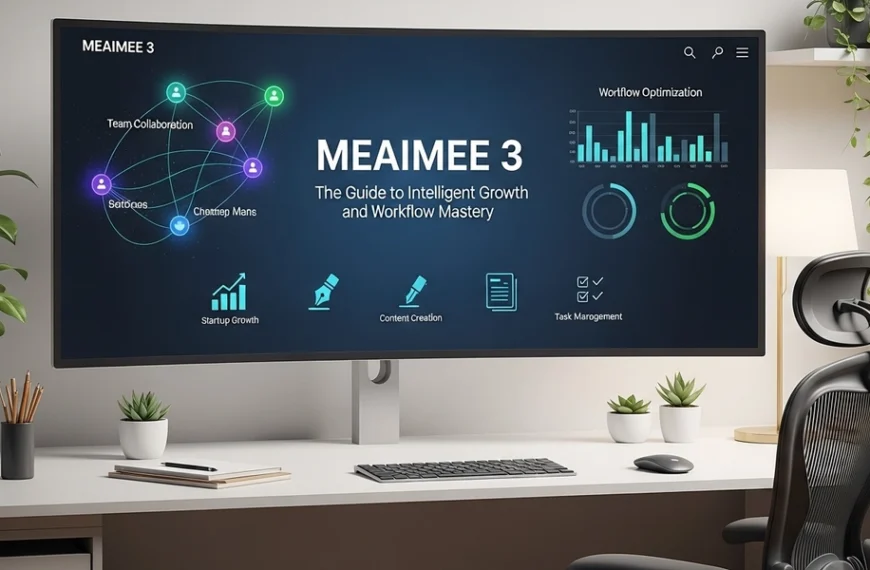Managing payroll and distributing paychecks represents one of the most critical functions in any organization. Employees depend on accurate, timely payments, and mistakes can damage trust, create legal issues, and impact overall workplace morale. Whether you’re a small business owner handling payroll personally or an HR professional overseeing complex payroll systems, understanding proper paycheck procedures ensures compliance and maintains employee satisfaction.
Effective payroll paycheck training becomes essential as organizations grow and processes become more complex. This comprehensive guide covers everything from understanding paycheck components to implementing best practices that protect both employers and employees.
Understanding Paycheck Components
Before distributing paychecks, it’s crucial to understand what information each document should contain. Proper paycheck documentation serves multiple purposes: it provides transparency for employees, ensures legal compliance, and creates necessary records for tax purposes.
Essential Information Requirements
Every paycheck must include specific details mandated by federal and state laws. Employee identification information should include full name, address, and employee identification number. Pay period dates clearly indicate the timeframe covered by the payment, while pay date shows when the payment was issued.
Gross wages represent total earnings before deductions, including regular hours, overtime, bonuses, and commissions. Net pay shows the actual amount received after all deductions. This distinction helps employees understand how their final payment was calculated.
Required Deductions and Withholdings
Federal income tax, Social Security, and Medicare taxes are mandatory deductions from most paychecks. State income taxes apply in most states, while some localities require additional tax withholdings. Unemployment insurance contributions may also be required depending on your location.
Voluntary deductions might include health insurance premiums, retirement contributions, life insurance, and other benefits. Each deduction should be clearly itemized with current period amounts and year-to-date totals.
Year-to-Date Totals
Paychecks should display year-to-date totals for gross wages, each deduction category, and net pay. This information helps employees track their annual earnings and tax withholdings, making tax preparation easier and providing transparency about benefit contributions.
Step-by-Step Guide to Distributing Paychecks
Proper paycheck distribution requires systematic processes that ensure accuracy, security, and compliance. Following established procedures reduces errors and protects sensitive financial information.
Pre-Distribution Verification
Before distributing any paychecks, conduct thorough verification processes. Review time records for accuracy, ensuring all hours worked are properly recorded and overtime calculations are correct. Verify that salary amounts match employment agreements and that any changes in pay rates or deductions have been properly implemented.
Double-check all mathematical calculations, including gross pay, deductions, and net pay amounts. Confirm that tax withholdings align with employee W-4 forms and that voluntary deductions match signed authorization forms.
Secure Distribution Methods
Choose distribution methods that protect employee privacy and ensure paychecks reach intended recipients. Direct deposit offers the most secure option, eliminating physical handling of sensitive documents and reducing the risk of lost or stolen paychecks.
When physical paychecks are necessary, establish secure distribution procedures. Create private spaces for paycheck pickup, require employee identification for verification, and maintain logs of who received their paychecks and when.
Documentation and Record Keeping
Maintain detailed records of all paycheck distributions. Document when each employee received their paycheck, how it was distributed, and any issues that arose during the process. These records become crucial for resolving disputes and ensuring compliance with labor laws.
Store payroll records securely, whether in physical files or digital systems. Ensure that only authorized personnel have access to sensitive payroll information and that backup systems protect against data loss.
Training Employees on Proper Paycheck Procedures
Effective payroll paycheck training extends beyond the HR department. Employees throughout the organization benefit from understanding paycheck procedures, particularly managers who may handle time reporting or address payroll questions.
Manager Training Requirements
Managers often serve as the first point of contact for payroll-related questions. Train managers to understand basic paycheck components so they can answer common employee questions accurately. They should know how to read pay stubs, understand deduction codes, and recognize when issues require HR intervention.
Provide managers with clear escalation procedures for payroll problems they cannot resolve independently. This prevents incorrect information from being shared and ensures complex issues receive appropriate attention.
Employee Education Programs
Help employees understand their paychecks through comprehensive education programs. Explain how gross pay is calculated, what each deduction represents, and how to read year-to-date totals. This knowledge reduces confusion and helps employees make informed decisions about voluntary deductions.
Offer training sessions for new employees during orientation and refresher sessions when significant changes occur. Consider creating written materials or online resources that employees can reference independently.
Communication Protocols
Establish clear communication protocols for payroll-related questions and issues. Designate specific team members to handle payroll inquiries and ensure employees know how to reach them. Set expectations for response times and escalation procedures for urgent issues.
Addressing Common Paycheck Issues
Even with proper procedures, paycheck issues occasionally arise. Having systems in place to address these problems quickly and accurately helps maintain employee trust and ensures compliance.
Calculation Errors
Mathematical errors in paycheck calculations can occur due to system glitches, incorrect data entry, or misunderstanding of pay policies. When errors are identified, investigate the cause immediately and implement corrective actions.
Document all errors and corrections for future reference. If errors result from systemic issues, address underlying problems to prevent recurrence. Consider implementing additional verification steps if errors occur frequently.
Missing or Late Paychecks
Missing or late paychecks create significant stress for employees and may violate labor laws. Establish emergency procedures for addressing these situations, including processes for issuing immediate payments when necessary.
Investigate the cause of missing or late paychecks to prevent future occurrences. Common causes include processing delays, system failures, or distribution problems. Address root causes rather than just symptoms.
Deduction Discrepancies
Incorrect deductions can result from outdated employee information, system errors, or misunderstanding of benefit elections. Regularly update employee records and verify that deduction amounts match signed authorization forms.
When deduction errors are discovered, calculate the correct amounts and determine whether adjustments are needed. Some errors may require corrections across multiple pay periods to avoid creating tax complications.
Legal and Compliance Considerations
Paycheck handling involves numerous legal requirements at federal, state, and local levels. Understanding these obligations helps organizations avoid penalties and protect employee rights.
Federal Requirements
The Fair Labor Standards Act (FLSA) establishes federal requirements for wage payments, including minimum wage, overtime calculations, and record-keeping obligations. These requirements apply to most employers and form the foundation of paycheck compliance.
Federal tax withholding requirements are governed by IRS regulations and require employers to withhold appropriate amounts for income tax, Social Security, and Medicare. Failure to comply with these requirements can result in significant penalties.
State and Local Laws
State laws often impose additional requirements beyond federal minimums. These may include specific pay frequency requirements, final paycheck timing, and additional withholding obligations. Some states require specific information to be included on pay stubs or mandate certain distribution methods.
Local jurisdictions may impose additional requirements, such as paid sick leave deductions or local income tax withholdings. Stay informed about applicable laws in all jurisdictions where your organization operates.
Record Retention Requirements
Federal and state laws require employers to maintain payroll records for specified periods. Generally, payroll records must be kept for at least three years, though some information may need to be retained longer. Ensure your record-keeping systems meet all applicable requirements.
Best Practices for Paycheck Management
Implementing best practices for paycheck management helps ensure accuracy, efficiency, and compliance while reducing the risk of errors and disputes.
System Security and Access Controls
Limit access to payroll systems to authorized personnel only. Implement strong password requirements, regular access reviews, and audit trails to track all system activity. Consider multi-factor authentication for additional security.
Regularly backup payroll data and test restoration procedures to ensure business continuity. Store backups securely and ensure they comply with data protection requirements.
Regular Audits and Reviews
Conduct regular audits of payroll processes to identify potential issues before they become problems. Review calculation accuracy, compliance with policies, and effectiveness of distribution procedures.
Include payroll processes in internal audit programs and consider engaging external auditors for additional verification. Document audit findings and implement corrective actions promptly.
Continuous Improvement
Regularly evaluate payroll processes for opportunities to improve accuracy, efficiency, and employee satisfaction. Consider employee feedback when making changes and communicate updates clearly to all affected parties.
Stay informed about changes in laws, regulations, and best practices that may affect payroll operations. Invest in ongoing training for payroll staff to ensure they remain current with evolving requirements.
Ensuring Accurate and Efficient Paycheck Handling
Proper paycheck procedures form the foundation of effective payroll management. Organizations that invest in comprehensive payroll paycheck training, establish clear processes, and maintain focus on accuracy and compliance create environments where employees feel valued and protected.
Success in paycheck handling requires attention to detail, commitment to compliance, and ongoing dedication to improvement. By following the procedures outlined in this guide and adapting them to your organization’s specific needs, you can build payroll systems that serve both employee needs and business requirements effectively. Remember that payroll processing affects every employee in your organization. Taking the time to implement proper procedures, train staff appropriately, and maintain high standards demonstrates respect for your workforce and helps build the trust necessary for long-term success.






